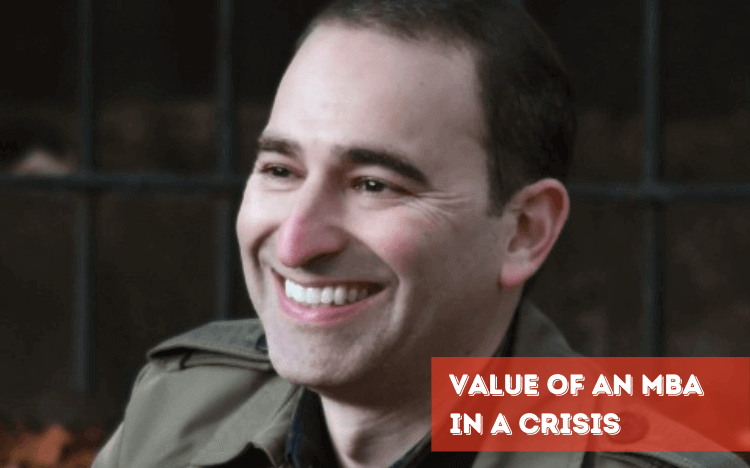Adam Siegel knew exactly what he wanted from his career, and saw the value an MBA could add to his new career in retail and corporate sustainability. Studying at MIT-Sloan School of Management when the financial crisis hit gave him a buffer from the real world, he says. But he had to face the reality of a massively altered job market as the world struggled to recover.
He didn’t panic when he couldn’t secure a job straight away. Instead, Adam took the time to take advantage of the network he’d started while at business school. After a year of unemployment, Adam secured a position with the Retail Industry Leaders Association (RILA)––he worked his way up to senior vice president of research, innovation, and sustainability over the eight years he remained there.
We spoke to Adam about the realities of securing work at a time of financial stability, and what advice he would give to current graduating students who are facing similar difficulties.
Value of an MBA in a Crisis
Read other stories of MBA graduates from the 2008 financial crash.
Audrey Hametner | Imperial College Business School
Scott Kennedy | Alliance Manchester Business School
Cesar Aya | Said Business School, University of Oxford
Damian Wisniewski | MIT Sloan School of Management
What was the climate like back in 2008 for MBAs?
People in my cohort had differing feelings about the situation. Some of us felt lucky because we enrolled the year before a lot of people started getting laid off and applying to business school. The economy was going downhill throughout my two years at MIT-Sloan. I was sheltered from it, but I recognized I was going to be entering the job market in midst of a downturn when I graduated in May 2009.
We signed up for business school with a specific idea or type of job we wanted to get once we graduated. We all felt we were developing a skill set and credentials that would help us when we left. The unfortunate reality in that scenario is that a lot of my cohort struggled; it became far more difficult to get a job.
For me, I didn’t have a specific job in mind when I went to business school. I knew I was interested in corporate sustainability, but I didn’t know how strong the market would be after ‘08, and I didn’t know what kind of job would make the most sense for me. I was using my time at business school to explore all of my options.
Since then, I’ve been focused on retail and consumer products for over 10 years––specifically in sustainability and corporate responsibility within that field.
How did you navigate the job market at that time?
That’s where my career path diverged from a lot of my classmates. I want to say between 85% to 95% of them managed to secure job roles within months of graduating. They might not have got the exact job they wanted right away because of the economy, but they were on the right track.
Meanwhile, I was hellbent on finding a job in sustainability––which was a very non-traditional career at the time. Jobs were few and far between. Fast forward 10 years and now I’d say most large corporates in the retail space––which is where I settled––have a sustainability of corporate responsibility function. There’s now a layer of sophistication that didn’t exist back then; the field was still being defined.
That meant I had to spend a lot of time networking and getting to know the space better, and finding my place in that sector before going for job roles.
What were your key takeaways and lessons learned?
My MBA gave me the confidence to back myself and take that all-important time to network. In that year of unemployment, I probably spoke with over 100 people who worked in sustainability in all different capacities––people in corporate responsibility roles, consultancies, renewable energy, startups, nonprofits, and governments.
A lot of companies couldn’t afford to hire for full-time roles, and so I was able to take on a number of short-term projects on the side. That was enough for me to pay my bills, but the varied experience was far more valuable.
That year after graduation was one of the most valuable years in my career. MIT-Sloan gave me the business skill set that let me turn my hand to several short-term projects and helped my get my foot in the door.
RECAPTHA :
9e
1c
e3
bd








